A woman who was left unable to walk after brain surgery is now taking on an ambitious 10,000 Steps a Day in February Challenge to help find a cure for brain tumours.
Jessica Jones, 38, a commercial banker from Llanelli in Carmarthenshire will be taking part in the challenge in aid of Brain Tumour Research just one year after brain surgery left her unable to walk.
Speaking of the challenge, Jessica said: “Given where I was this time last year, it will be incredibly challenging for me, but I am so eager to be active again and given the donations received to date, I’m fully dedicated to embrace and complete it.”
Jessica, who has three daughters, Ella, eight, and five-year-old twins Emily and Lily, first started experiencing hearing loss and tinnitus in 2019 and later suffered with headaches.
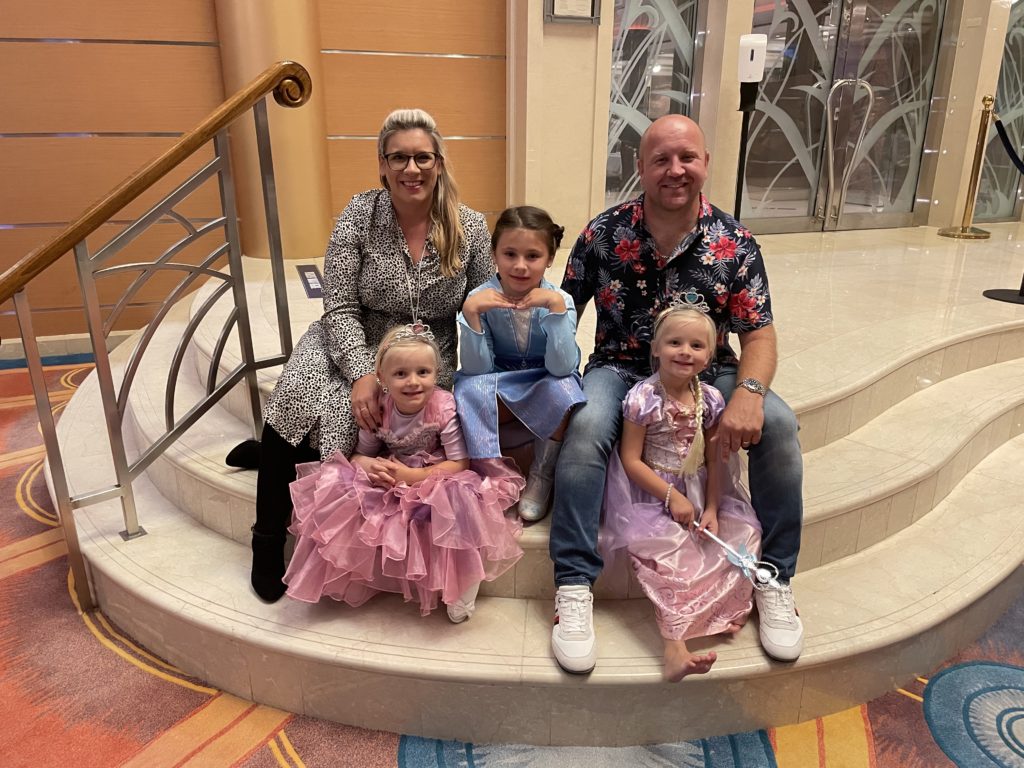

It wasn’t until June 2020, that she went to the GP to get her hearing and headaches checked and was given migraine tablets and told to go back if the problem persisted.
A few days later, she returned to the GP and was referred for a CT scan. During the two to three-week wait for a scan, her blood pressure became abnormally high and she was admitted to Prince Phillip Hospital in Llanelli for further tests. Jessica went into hospital on her own due to COVID-19 restrictions and after two days of tests was given the devastating news that she had an acoustic neuroma causing pressure on her brainstem.
Jessica said: “I had no family with me, just the doctor and nurse, who told me as I sat on the end of the bed on my own. At that point, all you want is your family around you for support to cuddle and comfort you – I had no one. Receiving the news was a very emotional experience but I am so grateful for the emotional support I received from family, friends and staff at Prince Philip Hospital, in the next few days which followed.
“I had to tell my husband, family and friends over the phone. Knowing very little about acoustic neuromas, I researched more about the brain tumour whilst in hospital to prepare for what was ahead of me. Throughout the last 12 months I have always tried to remain positive but it has been an emotional rollercoaster and I have been afraid.”
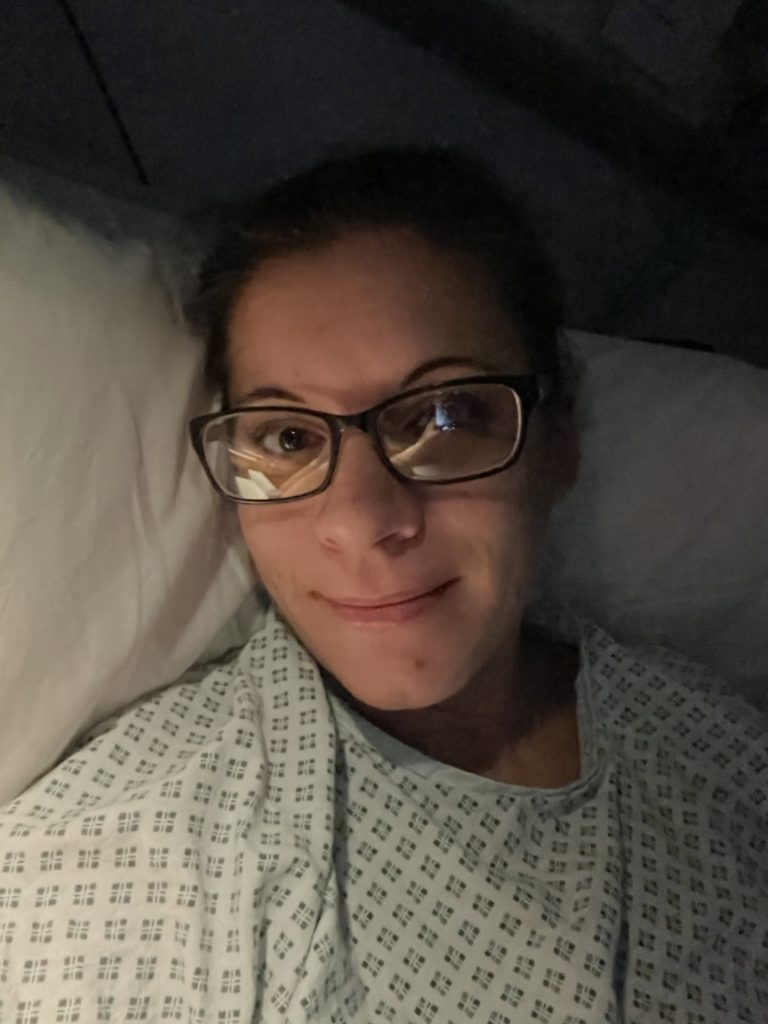

In January 2021, Jessica underwent a gruelling 13-hour operation where surgeons removed a section of her skull from behind her ear, and successfully took out most of the tumour. Surgeons advised to leave a small part of the tumour which had grown around the facial nerve, to avoid causing facial palsy however the procedure has left her with single-sided deafness.
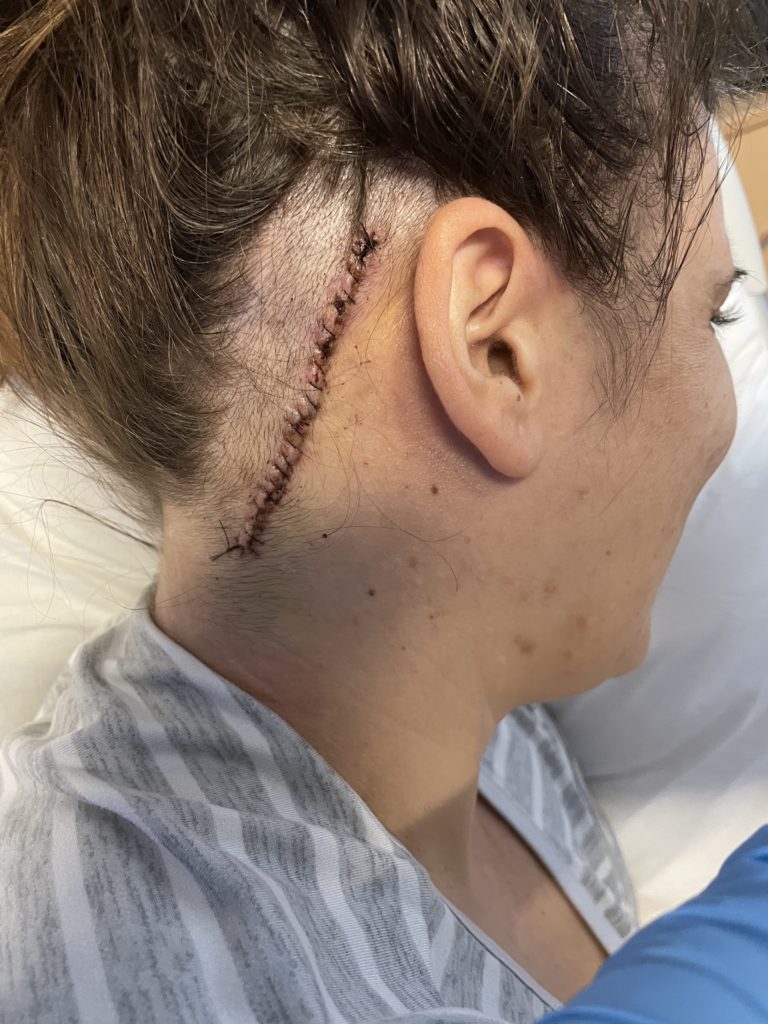

Following surgery, Jessica’s first recollection was when she opened her eyes, was that the whole room was spinning. She went on to continue to experience a form of vertigo by simply turning her head or speaking. Jessica spent two weeks in hospital, with no visitors. Aside from hearing loss, acoustic neuromas and their surgical removal can cause vestibular damage, which can result in balance issues. Simple things like standing were difficult in the first few days, post-surgery, but Jessica worked with her health team at Heath Hospital in Cardiff to improve co-ordination of eye and head movements and balance retraining to allow her to walk.
Jessica said: “I was unable to stand without vomiting the first few days. Thanks to the support of the team there, I finally left the hospital after two weeks, trundling along on a Zimmer frame at the age of 37.
“When I was home, I paid for weekly sessions with a neuro-physio who helped me build the confidence and strength to walk without the frame.”
Jessica now has yearly scans to monitor what is left of her tumour and on Christmas Eve, received news that the remainder of her tumour is stable. She describes this as ‘the best Christmas present’ she could have ever wished for and continues with her very positive outlook on life, to ‘make the most of every day’.
She added: “One of the hardest parts of my hospital stay was being unable to see my husband and girls, I was really sad to miss the twins turning four at the end of January, as I was in hospital at the time. When I came home, the girls put on their nurses’ uniforms to celebrate ‘Mammy’ coming home.”
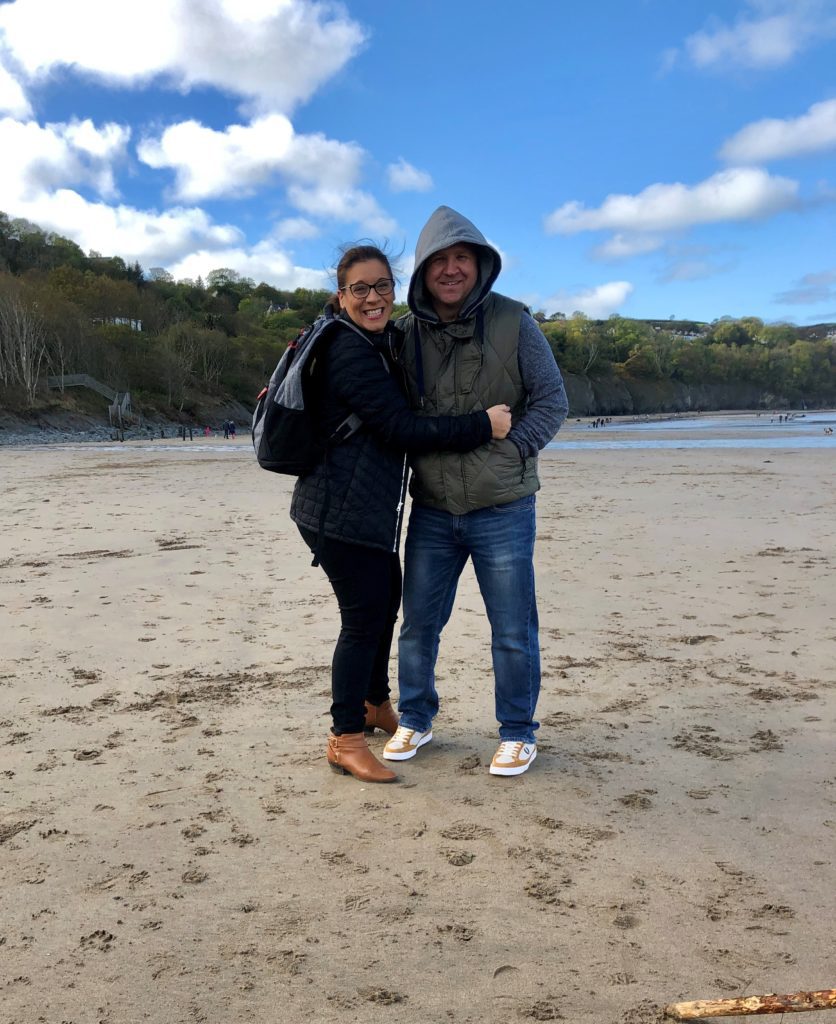

Just a year after surgery, Jessica is taking part in 10,000 Steps a Day in February Challenge to fundraise and raise awareness for Brain Tumour Research to help find a cure for the devastating disease.
She said: “My diagnosis has left me feeling fatigued. I returned to work in September and working from home, sometimes I don’t walk more than 2,000 steps a day. I’m taking part in this challenge because without the years of medical research undertaken my outcome and life could have been so different. I will be eternally grateful to the neuro team and to all those who have undertaken research into brain tumours whose dedicated work has allowed me to carry on with my life.”
After a successful first challenge a year ago which raised nearly £1 million to support vital research and campaigning, Brain Tumour Research’s 10,000 Steps a Day in February Challenge is back. The charity is calling for people to step up to the Facebook challenge and make it even bigger and better in 2022. Participants will receive a free emoji t-shirt and fundraising pack when they receive their first donation and a special medal if they raise £274 or more.
Mel Tiley, community development manager at Brain Tumour Research, said: “We’re sorry to hear about Jessica’s diagnosis. It’s incredible that she is using her 10,000 Steps a Day in February Challenge just a year after surgery and learning to walk again, we wish her the best of luck. The best part of the challenge is that you can fit your steps in with your everyday life. That could be having a coffee and catching up with friends at your local park, walking your commute or school run instead of driving, getting off the bus a few stops earlier or walking around your house whilst on the phone. You could even team up with friends or colleagues and complete your steps together!”
Brain Tumour Research funds sustainable research at dedicated centres in the UK. It also campaigns for the Government and the larger cancer charities to invest more in research into brain tumours in order to speed up new treatments for patients and, ultimately, to find a cure. The charity is the driving force behind the call for a national annual spend of £35 million in order to improve survival rates and patient outcomes in line with other cancers such as breast cancer and leukaemia and is also campaigning for greater repurposing of drugs.
You can sponsor Jessica on her 10,000 Steps a Day in February Challenge by visiting www.facebook.com/donate/620046872540775



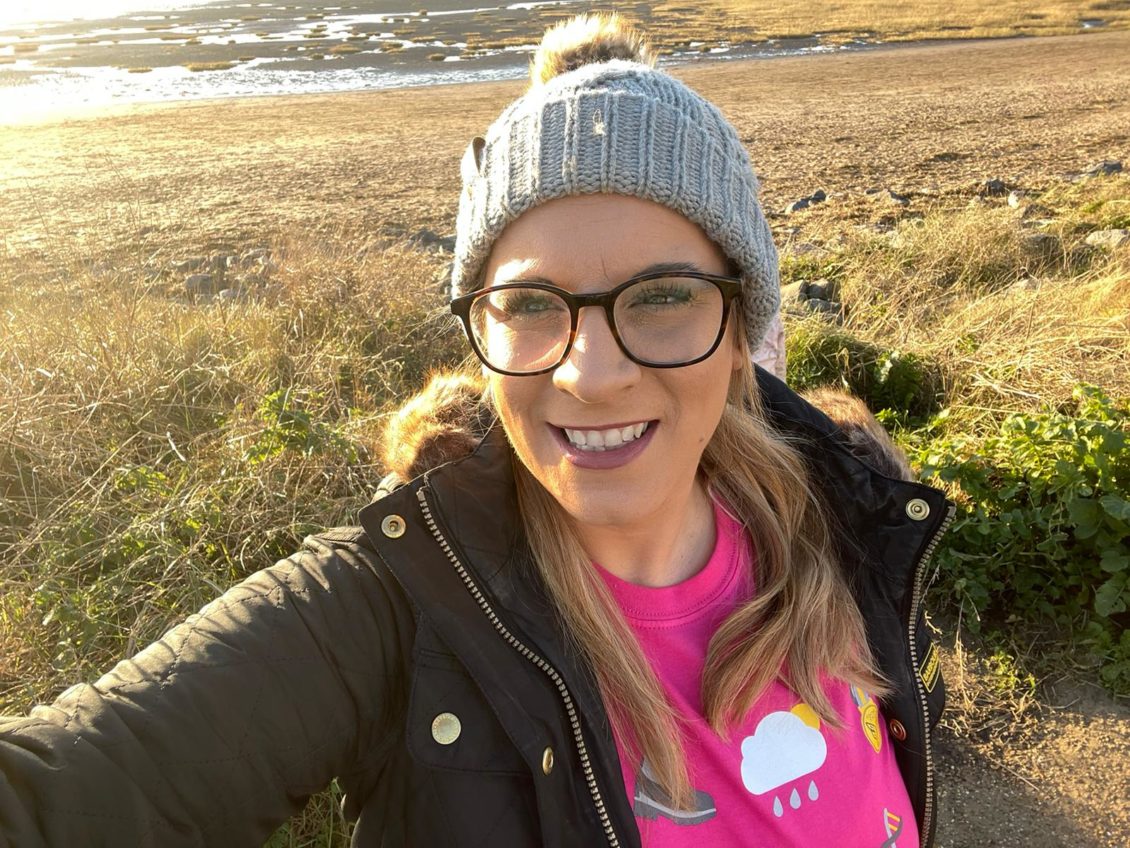




Leave a Reply
View Comments